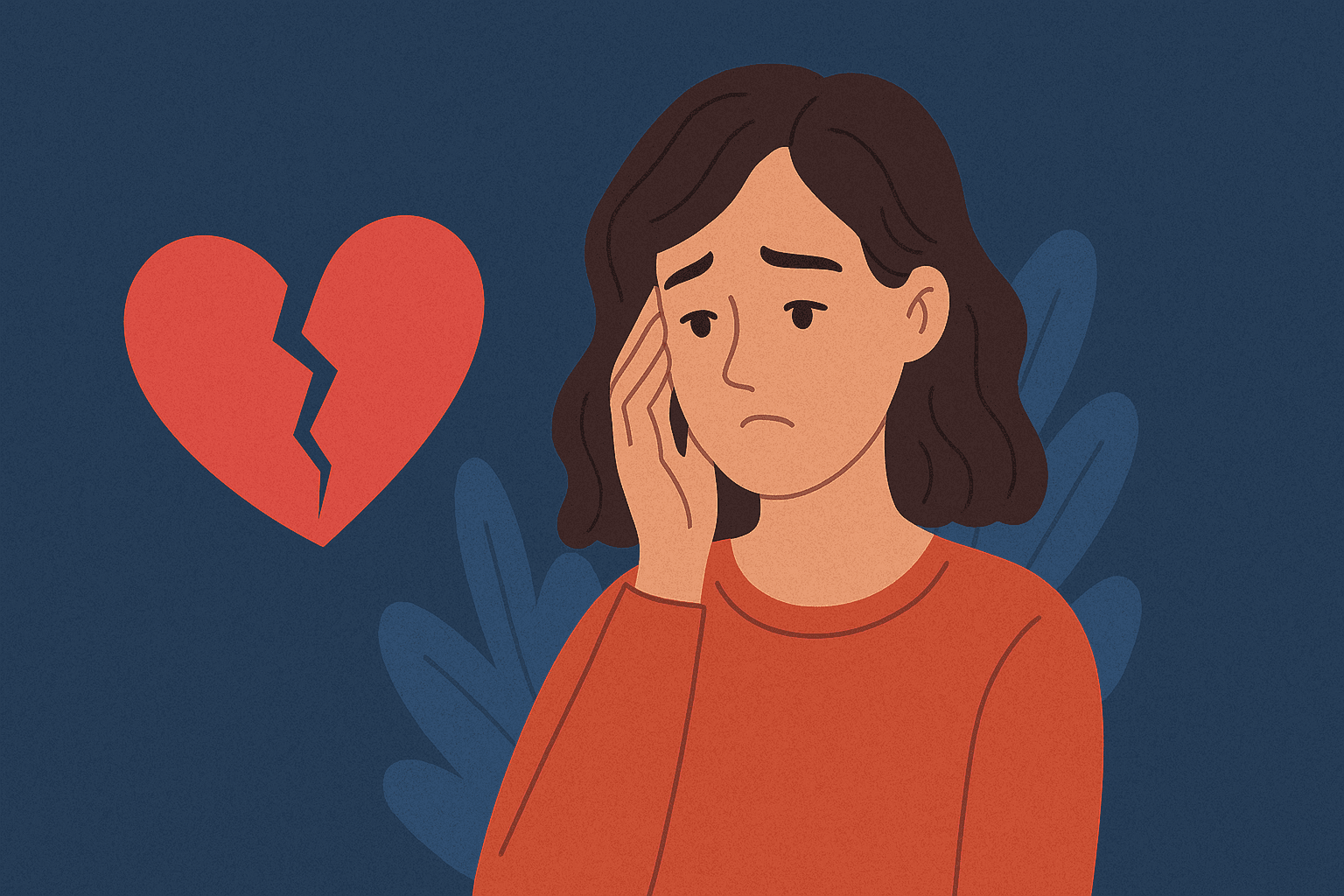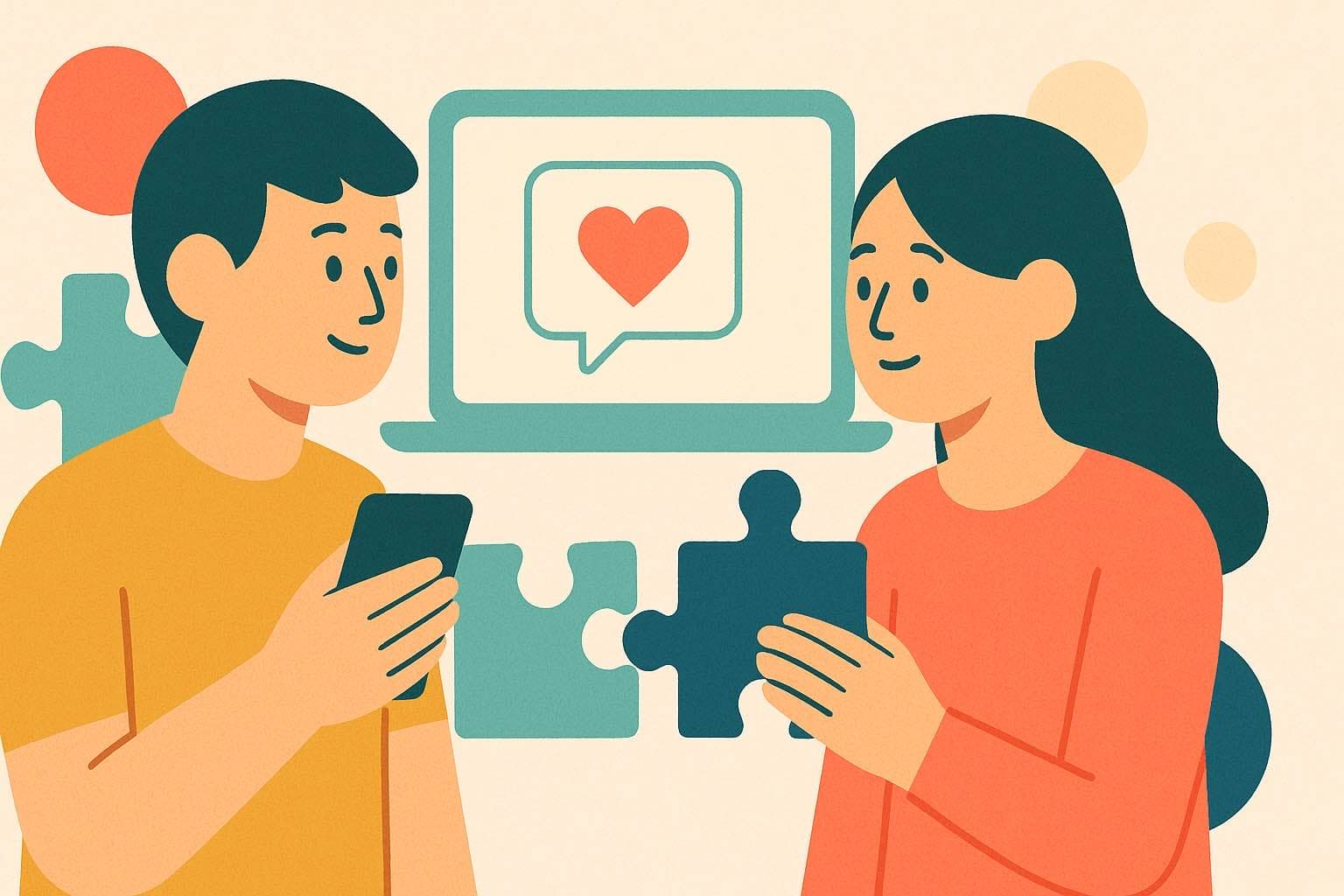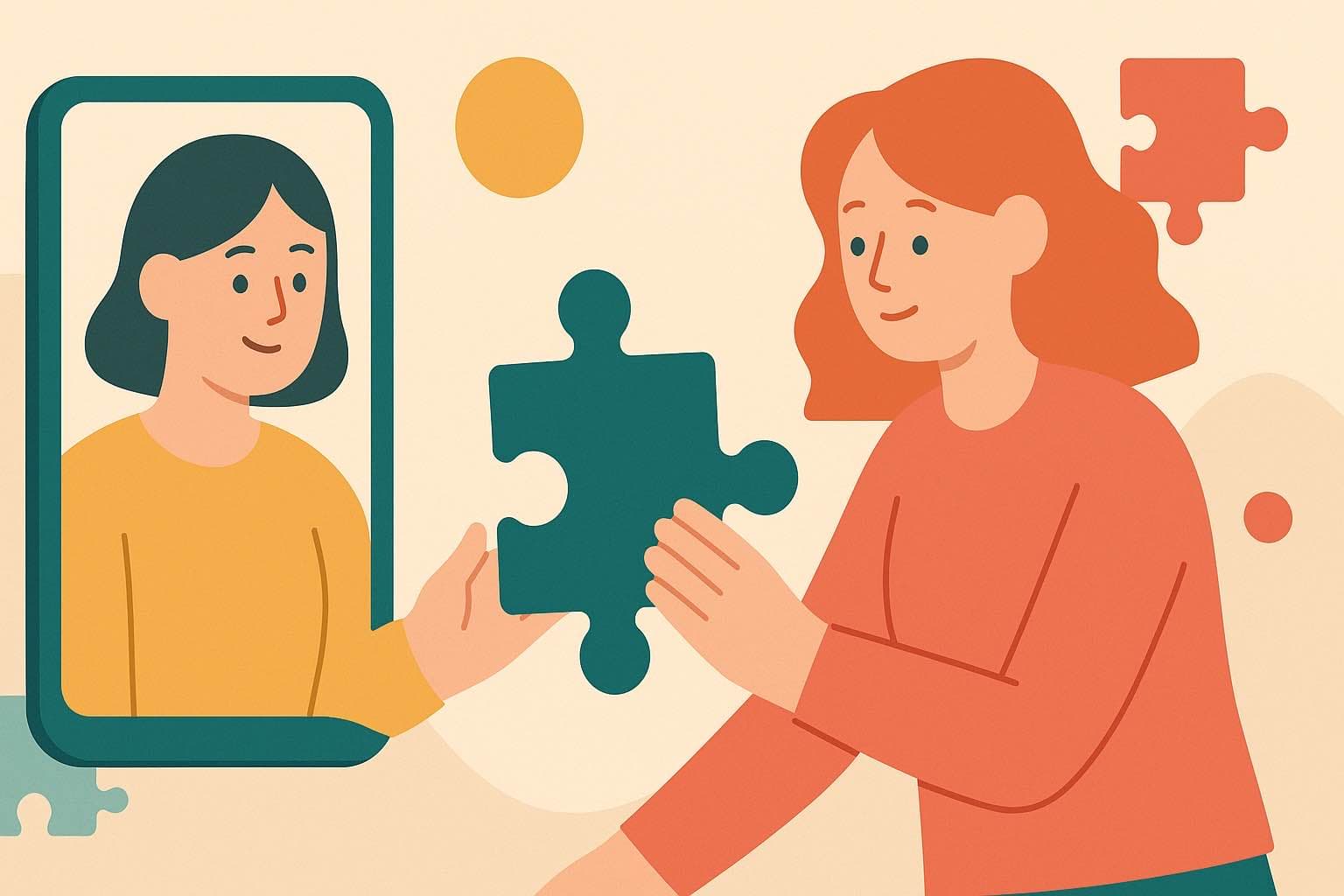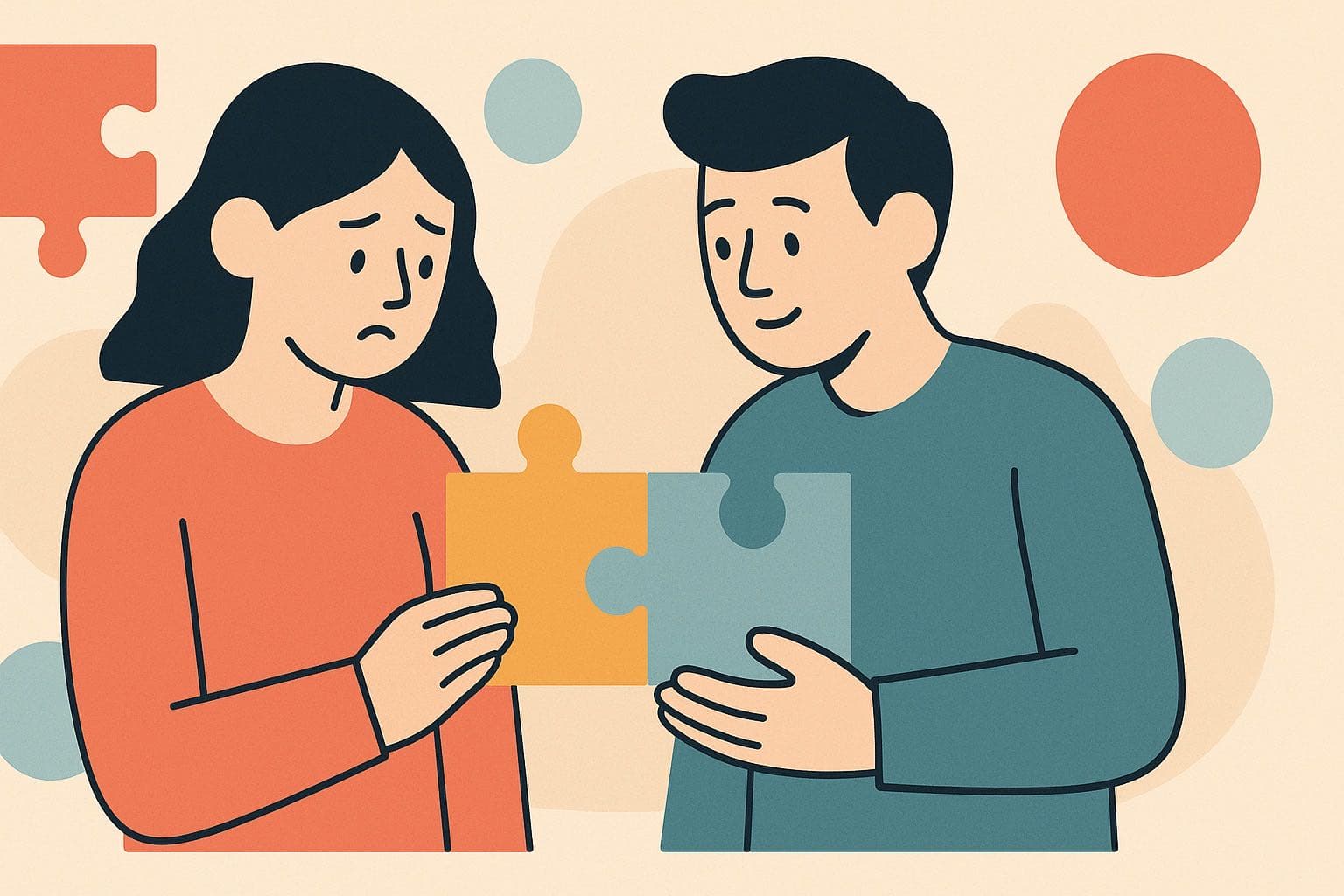7 Friendship Breakup Stages: Your Complete Guide to Healing and Moving Forward
Navigate the 7 friendship breakup stages with expert guidance. Learn how to heal from friendship loss, process grief, and emerge stronger.

Losing a close friend can feel like having your heart ripped out. Unlike romantic breakups that get plenty of attention, friendship breakup stages are rarely discussed openly. Yet dealing with the aftermath of a friendship coming to an end can be a turbulent experience fraught with emotional difficulty, often following patterns similar to the five stages of grief.
Whether you're currently experiencing a friendship loss or trying to understand what you went through, this comprehensive guide will walk you through each stage of the healing process. You'll discover why friendship breakups can hurt more than romantic ones and learn practical strategies for navigating this challenging journey.
Understanding the 7 Friendship Breakup Stages
The friendship breakup stages don't follow a neat timeline. Instead, they represent an emotional journey that can take months or years to complete. Healing from a friendship breakup is not a one size fits all experience, and you might find yourself cycling through different stages repeatedly.
The Complete Stage Breakdown:
- Shock and Disbelief
- Denial
- Anger
- Bargaining
- Depression
- Acceptance
- Transformation
Stage 1: Shock and Disbelief - The Initial Impact
The first of the friendship breakup stages hits like a freight train. One day you're texting regularly, the next day there's radio silence. This initial shock leaves you questioning reality.
Common experiences include:
- Feeling stunned and confused
- Repeatedly checking your phone for messages
- Wondering if it's just a misunderstanding
- Physical symptoms like nausea or headaches
Because most of us haven't been taught that breaking up with a friend is worthy of sympathy, it leaves a lot of ambiguity around how we should feel when one is ending. This stage often catches people completely off guard.
How to cope:
- Allow yourself to feel confused - it's normal
- Reach out to other trusted friends for support
- Avoid making major decisions while in shock
- Practice grounding techniques like deep breathing
Stage 2: Denial - "This Isn't Really Happening"
When a friendship comes to an end and the initial shock sets in, it can be difficult to accept the relationship is over, as there might still be a lingering hope that things will return to how they were.
During this stage, you might:
- Make excuses for your friend's behavior
- Convince yourself they're just busy
- Hold onto hope for reconciliation
- Minimize the severity of what happened
The danger of prolonged denial: Staying in denial too long prevents you from processing the reality of the situation. While it's natural to hope things will work out, accepting the truth is crucial for healing.
Moving through denial:
- Journal about what actually happened
- Talk to objective friends or family
- Avoid romanticizing the past relationship
- Set realistic expectations about contact
Stage 3: Anger - The Fire of Betrayal
Anger often emerges when denial starts cracking. This stage of the friendship breakup stages can feel overwhelming and consuming.
You might experience:
- Rage about wasted time and energy
- Resentment toward your former friend
- Anger at mutual friends who "chose sides"
- Frustration with yourself for caring so much
Revenge might have provided a temporary sense of satisfaction, but it wouldn't heal the wound of our broken friendship. Many people get stuck in this stage because anger feels empowering compared to sadness.
Healthy anger expression:
- Physical exercise like kickboxing or running
- Journaling angry thoughts privately
- Talking to a therapist or trusted friend
- Creative outlets like art or music
Avoid:
- Social media stalking or posting about the situation
- Badmouthing your former friend to others
- Seeking revenge or retaliation
- Making decisions based purely on anger
Stage 4: Bargaining - "If Only I Could Fix This"
The bargaining stage represents your mind's attempt to regain control. You might find yourself thinking "if only" thoughts constantly.
Common bargaining behaviors:
- Rehearsing what you'd say to make things right
- Planning "accidental" encounters
- Asking mutual friends to intervene
- Changing yourself to become more appealing
Bargaining arises because we are trying to find ways to deal with the grief of losing our friend. This stage can be particularly painful because it keeps you emotionally invested in an outcome you can't control.
Breaking the bargaining cycle:
- Recognize when you're bargaining
- Focus on what you can control (your own healing)
- Practice acceptance meditation
- Set boundaries around contact attempts
Stage 5: Depression - The Deep Valley of Grief
This stage brings the full weight of the loss. Losing a friend can be damaging to our mental and physical health, and depression is often the most challenging of the friendship breakup stages.
Symptoms may include:
- Persistent sadness and crying
- Loss of interest in activities
- Feeling isolated and alone
- Physical symptoms like fatigue or sleep issues
- Questioning your self-worth
Important note: If depression symptoms persist for weeks or interfere with daily functioning, consider seeking professional help.
Supporting yourself through depression:
- Maintain basic self-care routines
- Stay connected with other supportive relationships
- Consider therapy or counseling
- Practice gentle self-compassion
- Engage in meaningful activities, even if you don't feel like it
Stage 6: Acceptance - Finding Peace with Reality
Healing then begins with an acceptance of the present situation. It doesn't mean that what has happened was desirable. What it does mean is that closure can now be found and a new perspective can be brought in by acknowledging the lessons learned.
Acceptance doesn't mean you're happy about what happened. Instead, it means:
- Acknowledging the friendship is over
- Stopping attempts to fix or control the situation
- Finding meaning in the experience
- Feeling ready to invest in other relationships
Signs you're reaching acceptance:
- You can think about your former friend without intense emotion
- You're not checking their social media constantly
- You're open to new friendships
- You can see lessons learned from the experience
Stage 7: Transformation - Becoming Someone New
The final step is the metamorphosis into someone entirely new. Instead of being chained to the past, one can look ahead with a renewed sense of self and optimism, opening up once again to the potential of even deeper connections.
This final stage represents growth and renewal. You might discover:
- Clearer boundaries in relationships
- Better understanding of your friendship needs
- Increased emotional resilience
- Deeper appreciation for current relationships
Why Friendship Breakups Hurt So Much
You're not wrong if you think breaking up with a friend feels worse than ending a romantic relationship with a significant other. Several factors make friendship breakups uniquely painful:
Lack of Social Recognition Experts say that friendship breakups are a form of disenfranchised grief—feelings of loss that "cannot be openly acknowledged, openly mourned, or publicly supported".
No Clear Framework Unlike romantic relationships, there's no established protocol for ending friendships or processing the aftermath.
Deeper Intimacy The emotional intimacy shared with a close friend can be as powerful as a romantic partner.
Unexpected Nature We expect romantic relationships might end, but friendship is supposed to be forever.
Common Causes of Friendship Breakups
Understanding why friendships end can help process the friendship breakup stages more effectively. Changes in life circumstances, different interests and values, lack of effort and communication, unresolved conflicts, breaches of trust, envy, competition, finding yourself at different life stages, personal evolution… these factors, and more, all play significant roles in the end of friendships.
Major triggers include:
- Life transitions (moving, marriage, career changes)
- Value conflicts or personality clashes
- Betrayal or broken trust
- One-sided effort in maintaining the relationship
- Growing apart naturally over time
- Toxic or manipulative behavior
- Jealousy or competition
Healthy Coping Strategies for All Stages
Regardless of which of the friendship breakup stages you're experiencing, these strategies can support your healing:
Immediate Self-Care
- Maintain basic hygiene and routines
- Eat nutritious meals and stay hydrated
- Get adequate sleep
- Exercise regularly
Emotional Processing
- Journal about your feelings
- Practice mindfulness meditation
- Talk to trusted friends or family
- Consider professional counseling
Social Support
- Lean on your existing support network
- Join new groups or activities
- Volunteer for causes you care about
- Consider online support communities
Personal Growth
- Reflect on lessons learned
- Identify patterns in your relationships
- Work on personal development
- Set healthier boundaries
When to Seek Professional Help
While the friendship breakup stages are normal, sometimes professional support is beneficial:
Consider therapy if you're experiencing:
- Persistent depression lasting weeks
- Difficulty functioning in daily life
- Substance abuse as a coping mechanism
- Thoughts of self-harm
- Inability to form new relationships
With help from a therapist, you can find support and help to navigate this grief to learn how to heal and progress in life without this relationship.
Rebuilding After Loss
Moving through the friendship breakup stages eventually leads to rebuilding. This doesn't mean replacing your lost friend, but rather:
Creating space for new connections:
- Be open to meeting new people
- Join activities aligned with your interests
- Practice vulnerability with potential friends
- Focus on quality over quantity
Strengthening existing relationships:
- Invest more time in current friendships
- Express gratitude for loyal friends
- Be the friend you wish to have
- Create deeper bonds through shared experiences
Learning from the Experience
Each friendship loss teaches valuable lessons. Even though it's painful, friend breakups can also mean that we are growing in ways that the friendship couldn't sustain.
Key insights might include:
- Your non-negotiable values in friendship
- Warning signs of unhealthy dynamics
- The importance of communication
- How to set and maintain boundaries
Supporting Others Through Friendship Breakups
Understanding the friendship breakup stages helps you support friends experiencing loss:
How to help:
- Listen without judgment
- Validate their pain
- Check in regularly, even months later
- Avoid pushing them to "get over it" quickly
- Share activities that bring joy
When I went through a friendship breakup, the absolute most helpful thing for me was people checking in even months later. This is typically the time that's most isolating after any breakup because outside people move on.
The Long-Term Perspective
The friendship breakup stages don't end with a clean resolution. Years later, you might still feel twinges of sadness or wonder "what if." This is completely normal.
Long-term healing includes:
- Periodic processing of emotions
- Continued growth and learning
- Appreciation for the good times shared
- Peace with the decision to move forward
Frequently Asked Questions About Friendship Breakup Stages
How long do friendship breakup stages last? There's no set timeline. Some people process grief in months, others need years. With time and self-care, the pain will lessen. You may always have fond memories of your friendship, but eventually, you'll be able to move forward and focus on new experiences and relationships.
Is it normal to cycle through stages repeatedly? Absolutely. The friendship breakup stages aren't linear. You might feel accepting one day and angry the next. This back-and-forth is part of normal healing.
Should I try to reconcile with my former friend? If there was no rupture, perhaps there's an opportunity to simply reconnect. But if one or both friends feel wronged or hurt, this will likely require an honest, difficult conversation. Consider whether both parties are willing to address what went wrong.
Can friendship breakups cause depression? Yes. Oftentimes, during any kind of relationship breakup, conditions such as low self-esteem, grief, depression, or post-traumatic stress may develop after the breakup. If symptoms persist, seek professional support.
Why don't people talk about friendship breakups more? Society focuses heavily on romantic relationships while minimizing platonic ones. This creates a lack of vocabulary and support systems for friendship loss.
How do I know if I'm in denial about a friendship ending? Signs include making excuses for poor treatment, convincing yourself things will return to normal, or minimizing serious conflicts. Reality-checking with trusted friends can help.
Conclusion: Moving Forward with Wisdom
The friendship breakup stages represent a challenging but ultimately transformative journey. While losing a close friend is never easy, understanding these stages can help you navigate the process with greater self-compassion and clarity.
Remember that healing isn't about forgetting or pretending the relationship didn't matter. Instead, it's about honoring what was good while making peace with what couldn't continue. Through this process, you develop deeper self-awareness, stronger boundaries, and the capacity for even more meaningful connections in the future.
The pain you're feeling is real and valid. By understanding the friendship breakup stages and implementing healthy coping strategies, you're taking important steps toward healing and growth. Trust that with time, patience, and self-care, you will emerge from this experience stronger and wiser than before.
Remember: If you're struggling with persistent depression or thoughts of self-harm, please reach out to a mental health professional or crisis hotline immediately.
Related Articles

Digital Tools for Friendship Restoration for Teens and College Students: 7 Apps That Actually Work
Discover 7 powerful digital tools that help teens and college students repair broken friendships. From AI coaches to structured conversations, learn how to fix friendships fast.

Digital Tools for Friendship Restoration: How to Blend Online and Offline Repair
Discover proven digital tools and strategies to restore damaged friendships. Learn how to combine online platforms with offline actions for meaningful reconciliation.

Conflict with a Friend? Here's the Step-by-Step Fix
Learn how to fix a friendship after conflict with proven communication strategies, emotional repair techniques, and actionable steps to rebuild trust.

How to Survive a Friend Breakup When You Share the Same Friend Group (Without Losing Your Mind)
Friend breakups hurt worse when you share the same social circle. Learn proven strategies to heal, set boundaries, and navigate awkward group dynamics without losing yourself.